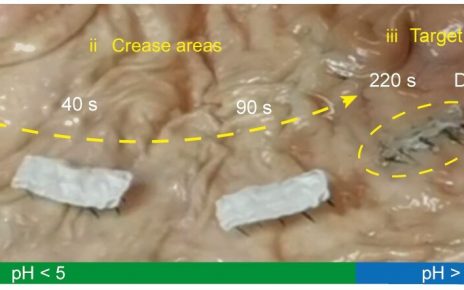Could an injection of a ‘young blood’ protein be the ‘fountain of youth’? Study claims an enzyme from younger mice extended lifespan by 16% for older ones
- A protein in the blood called eNAMPT plays a role in how cells produce energy
- Its levels are high when we are young, but they decrease as we age
- Older mice who received the protein from the blood of younger mice had improved cognitive function and had their lifespans increase by nearly 20%
Injecting a protein from the blood of younger mice could be the key to the ‘fountain of youth’ in older ones, a new study suggests.
Scientists say that the protein, called eNAMPT, is prolific in young mice, and helped keep older rodents healthier, and alive longer.
Older mice who received injections of the protein saw their cognitive function improve, had better sleep quality and had their lifespans extended by nearly 20 percent.
In humans, this is the equivalent of the life expectancy being extended from age 79 to age 91.
The team, from the Washington University School of Medicine in St Louis, Missouri, says the findings indicate that this method could be the secret to warding off age-associated diseases and be an anti-aging method for humans.

A new study from Washington University School of Medicine found that injecting older mice with a protein found in younger mice extended their lifespans by about 20%, suggesting it could be a future anti-aging intervention in humans (file image)
The protein is an enzyme known as eNAMPT, which plays a role in how cells produce energy.
As the body ages, however, cells become less efficient at making this energy, which is called NAD.
‘We think the body has so many redundant systems to maintain proper NAD levels because it is so important,’ said senior author Dr Shin-ichiro Imai, a professor of developmental biology at Washington University.
‘Since we know that NAD inevitably declines with age…many researchers are interested in finding anti-aging interventions that might maintain NAD levels as we get older.’
For the study, published in the journal Cell Metabolism, the team gave one group of older mice concentrated eNAMPT taken from younger mice and gave another group a saline solution.
The mice in the group that got the saline solution all died within about 2.4 years, while the mice given eNAMPT died within about 2.8 years.
This means the lifespan of the mice in the protein group was roughly 16 percent longer than the control group.
Older mice with higher levels of this blood component also had better sleep quality, improved cognitive function on memory tests, and ran more on the wheels in their cages.
‘We have found a totally new pathway toward healthy aging,’ Dr Imai said.
‘That we can take eNAMPT from the blood of young mice and give it to older mice and see that the older mice show marked improvements in health – including increased physical activity and better sleep – is remarkable.’
The pathway is similar to one made by Harvard University geneticist Dr David Sinclair, who says that he is living longer by ingesting elysium, a molecule known to be a NAD booster – and found to improve the health and lengthen the lifespan of mice.
Dr Imai and his team believe that the reason we age quicker when levels of the protein decline has to do with the hypothalamus.
The hypothalamus is the region of the brain known to be important in social behavior and hormone production, and is regulated in large part by this protein.
Recently, it’s been discovered that stem cells in the hypothalamus control the body’s aging process.
As levels of this key protein decrease during aging, researchers believe the hypothalamus does not function as well, which is why lifespans are shortened.
For future research, the team wants to study whether low levels of the eNAMPT protein are associated with diseases in older humans and if it can be used as an anti-aging intervention.
Source: Read Full Article



